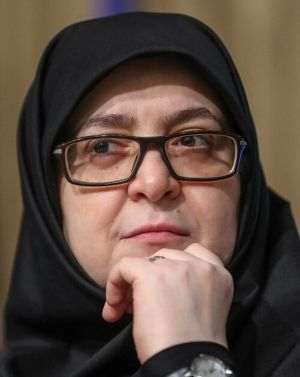• The Court of Appeal of Bucharest ruled, for the first time, that a former owner whose assets were seized by the Communist government can opt to be compensated with cash instead of receiving shares of the Proprietatea Fund
• The court ruled that former owners who received stock in the Proprietatea Fund were not fairly compensated, as they would be forced to sell the shares in the fund at a price far below their official value
For the first time, a Romanian court decided that an owner whose assets were seized by the Communist regime needs to be compensated using cash instead of shares of the Proprietatea Fund.
At the end of last week, the Bucharest Court of Appeal ruled that Ilie Nicolae was entitled to receive EUR 972,000 in compensation, for the building owned by his family which was seized by the communist regime before 1989.
Ilie Nicolae last year sued the Mayoralty of Bucharest for failing to solve on time his request to receive compensation for the building in question. The Court of Bucharest ruled in favor of the plaintiff, and the Mayoralty appealed the decision.
Gheorghe Piperea, the lawyer that represented the rightful owner, said that he had requested for compensation in cash or in the form of shares in the Proprietatea Fund.
"The Court of Appeal ruled that offering shares in the Proprietatea Fund was an unfair method of compensation, and ruled that the owner is entitled to receive compensation in cash - the equivalent of EUR 972,000", Gheorghe Piperea said.
The decision of the Court of Appeal is definitive, but not irrevocable; it can be challenged with a supervisory appeal, within 15 days.
For the moment the ruling of the court is enforceable. Meaning Ilie Nicolae can foreclose on the Mayoralty to receive his compensation.
The European Court for Human Rights (ECHR) issued several rulings over the course of the last years, stating that the "Proprietatea Fund" does not represent a workable solution for compensating the owners whose assets were seized by the communist regime before 1989.
The Court of Appeal mentions that CEDO ruled when the restitution in kind of a building was not possible, the state was required to compensate the owner of the restitution right, by covering the full prejudice suffered.
The Court of Appeal considers that neither the amendment of the law by which the Proprietatea Fund was set up, which stipulated that owners could receive up to 500,000 lei in cash, and stock in the Proprietatea fund for damages which exceeded that amount, nor the fact that the trading of shares of the Proprietatea Fund was allowed starting with March 2008, were enough to compensate former owners.
Quite the opposite.
The position of the Court of Appeal is rather stern: "However, because the Fund has not yet been registered with the Romanian Securities Commission, which violates the obligations provided by the Law 247/2005, the owners that were compensated with shares in this investment fund, can only obtain money by selling those shares on the black market, thus receiving a price far below their official value. The price difference is the risk that buyers are taking, since they don"t know what the value of those shares will be once they begin trading on a regulated market".
The judges claim that this state of things was also acknowledged by the European Court of Human Rights, through its ruling of July 20, 1996, issued in the case Radu vs. Romania: "The European Court of Human Rights has noted, mostly, that the Proprietatea Fund does not operate in a manner that would provide compensation to its shareholders. One of the arguments in favor of this conclusion is the fact that, for the fund to be effectively functional, several operations are required which have not yet been completed, in order to allow its listing on the stock exchange".
The main aspect noted by the Bucharest Court of Appeal was the fact that the fund has not yet been registered with the Romanian Securities Commission (CNVM) as "another type of collective investment organism" (AOPC).
Coincidentally, on the same day that Ilie Nicolae received the notification from the court of appeal about the ruling in his favor, the decision announcing the registration of the Proprietatea Fund with the Romanian Securities Commission was published in the Official Gazette.
Even so, it is unlikely the Fund will get listed on the stock exchange this year, five years after its creation.
That is why, the decision of the Court of Appeal essentially states that the Proprietatea Fund is not a viable solution for compensating former owners whose assets were seized by the Communist regime.
Which means that, legally speaking, the Proprietatea fund has not yet found its purpose, five years after its creation, even though it was created in an extreme haste, by circumventing the Parliament.
Who"s going to take the blame for the fact that so many years later, we are also paying for the shares of the Proprietatea fund, as well as damages in cash?
And on top of that, we are paying millions of Euros in severance packages to the former managers of the Proprietatea Fund, who were abusively let go...
• A troubled history
The Proprietatea Fund was created in December 2005, after the Tăriceanu government had appointed, in April, a group of experts from several ministries that was tasked with finding the optimal solution for compensating the former owners of buildings which were seized by the communist regime.
The group had the following members: chairman Bogdan Olteanu, delegated minister of the Department for the Relationship with the Parliament; vice-president - Ingrid Zaarour, secretary of state, president of the Authority tasked with ensuring the fair application of the Law 10/2001; vice-president - Vlad Moisescu, advisor to the prime-minister; members - Szasz Attila, director, representative of the minister for the coordination of cultural activities, education and European integration; Alexandru Cojocaru, advisor to the prime minister; Nicolae Ivan, secretary of state in the Ministry of Public Finance; Dragoş Neacsu - secretary of state with the Ministry of Public Finance; Gabriel Zbârcea, the chairman of the Authority for State Assets Recovery (AVAS); Marian Eftimescu, secretary of state in the Ministry of Justice; Bogdan Cătuneanu, general manager of the Department for State Interests and Privatization of Industrial Companies.
The group drafted a law whose main goal was to create the Proprietatea Fund, as a way of compensating former owners who could no longer receive their properties back.
In July 2005, the Tăriceanu government took full responsibility before the Parliament for the draft bill, which was bundled with the laws on the reform of the Justice system.
As a result, the Proprietatea Fund was created without going through a debate in the Parliament.
Most of the members of the Commission which were involved in the creation of the fund later became member"s of the Fund"s board: Vlad Moisescu, Alexandru Cojocaru, Nicolae Ivan, Ingrid Zaarour and Bogdan Cătuneanu.
The Fund was initially designed as mutual fund, (OPCVM -Collective organism for investments in securities), but experts and the CNVM itself said that the structure of the Fund prevents it from operating as such, which delayed its listing on the stock exchange by several years.
The Government later revised the law, changing the structure of the Fund to turn it into "Other type of collective investment organism (AOPC).
The new legal norms allowed the trading of shares of the fund since 2008, and the trading of shares before the effective listing of the Fund on the stock market, through the Central Depository.
The Court of Appeal now considers that deals between owners of shares in the Proprietatea Fund are taking place on a "black market", which would make them illegal. In our opinion this is erroneous, and perpetuates the confusion between an illegal market and one that is unregulated or unorganized.
• A Fund worth Billions of Euros
The initial capital of the Fund was set at 4 billion Euros, even though we don"t know the final worth of the compensations that will be paid out. The market value of the stakes owned by the Romanian state in the dozens of companies that were transferred into the Fund"s portfolio is not known either, right now only an accounting valuation is available for them.
BURSA and lawyer Gheorghe Piperea (the one that represented Ilie Nicolae, in the case mentioned earlier in this article), have criticized since the beginning the way the compensation system was designed, which not only did not guarantee that those entitled would receive a fair and accurate compensation, but rather, through the fluctuations of the stock market, they would either receive more, or less than what they deserved.
What"s more, BURSA emphasized at the time that there was nothing to stop an owner that had received shares of the Fund as compensation, from selling them, and then going to court or to the European Court for Human Rights and suing the Romanian state asking to receive the remaining compensation in cash.
The rush with which the Fund was created did not leave the Parliament time to find an adequate solution for the compensation.
And this rush is now affecting all of us.















































